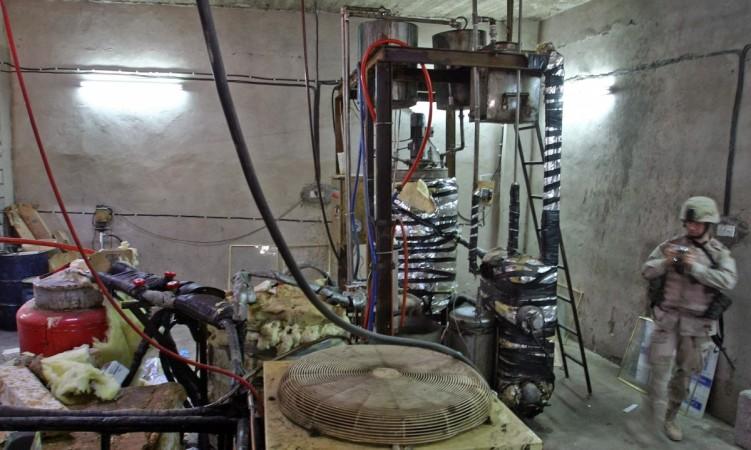
To prevent chemical weapons from falling into the hands of terrorists, the United States' Central Intelligence Agency (CIA) reportedly bought such weapons from an Iraqi seller and destroyed them in a secret plan.
The plan "Operation Avarice" was a systematic effort by the CIA that began in 2005 and went on till the next year, involving purchase and destruction of about 400 Borak rockets that were manufactured by the then Saddam Hussein regime and remained unaccounted for after the 1991 Persian Gulf war.
"This was a timely and effective initiative by our national intelligence partners that negated the use of these unique munitions," retired Army Lt. Gen. Richard P. Zahner. Some of the rockets contained nerve gas sarin.
Zahner, who served as an a senior intelligence officer in Iraq during those years, claimed that it was the most successful programme to reduce Iraq's residual stockpile of chemical weapons after the US invaded the country in 2003.
The intelligence agency was working with American troops during those years.
The arms purchase programme was run by the CIA station in Baghdad, along with the US army's "203rd Military Intelligence Battalion and teams of chemical-defense and explosive ordnance disposal troops," according to a New York Times report.
While the CIA preferred not to comment on the report, the Pentagon made a generic statement.
"...it is fair to say that together with our coalition partners in Iraq, the U.S. military worked diligently to find and remove weapons that could be used against our troops and the Iraqi people," Rear Adm. John Kirby, the Pentagon press secretary, said in a written statement, according to the NYT report.
The report said it was not possible to ascertain the amount paid to acquire the weapons or the background of the Iraqi seller.
The rockets containing sarin affirm claims made by war veterans that the US military did not share information about the risk of potential injuries arising from chemical weapon attack during the war and appropriate medical treatments to treat troops if and when attacked.
Some of them were actually attacked by other chemical weapons after 2006, prompting accusations that medical treatment was not up to the mark to treat affected troops.
The NYT report has prompted analysts to question the US military's committment to its troops.
"If we were aware of these compounds, and as it became clear over the course of the war that our troops had been exposed to them, why wasn't more done to protect the guys on the ground? It speaks to the broader failure," said Aaron Stein, an associate fellow at the Royal United Services Institute.

















